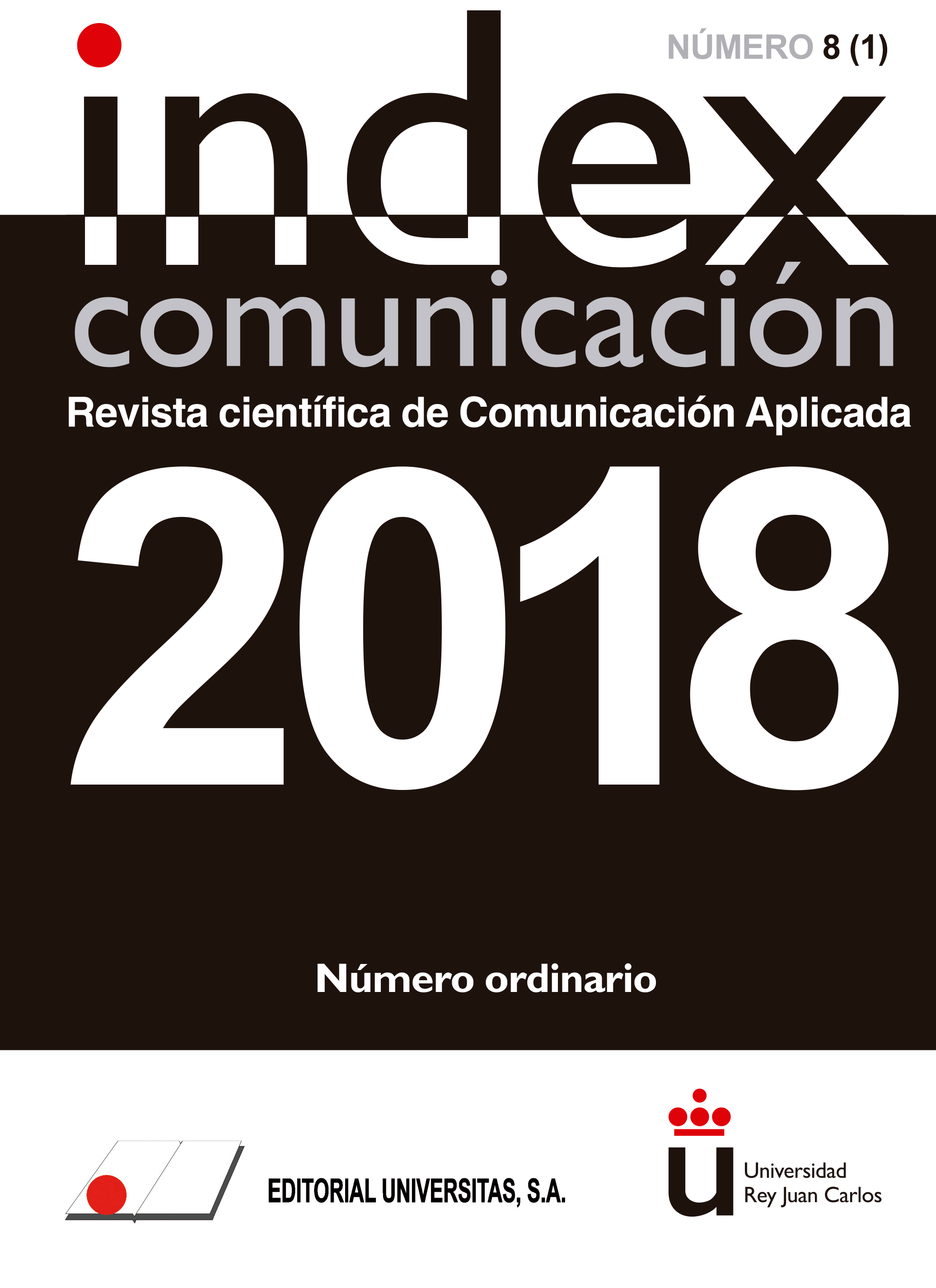The ICT resemantization of the humanist culture
Keywords:
(era of) communication, culture, (techno) society, (techno) humanism, masses, ICT,Abstract
This paper essays a hermeneutical reflection on the repercussion of the ICT phenomenon in the notion of “culture”, which is resignifying what today means to be an “educated” person. In particular, we try to find out the reasons explaining why the elevated education model, linked secularly to the modern project of humanism, has become inoperative. The objective is to understand that ICT are the factum of our time and precisely because they are modifying the criteria of human readability. Thus, the consequences of the inversion of the means-ends relationship inherent to the globalization of ICT are problematized. This fact no longer allows the reading of the human being as a subject and of the technique as an instrument at “his” axiological disposal, which requires reviewing the categories of humanism. It is concluded by noting the correspondence between the neotechnological fact and the “mass-man”, whose indifference to the “cult” displaces the old “humanistic” cult/barbarian opposition to the cult/specialized one. And, in the face of mass culture or coolture as neobarbarism of specialization, it is proposed to redefine the cult human as a specialist almost in a cinematographic sense, as the “double”, specialist in generalities, who knows how to return any allegedly necessary or unique discourse to its genuine contingency.
Metrics
References
Alonso, A. y Arzoz, I. (2002). La Nueva Ciudad de Dios. Un juego cibercultural sobre el tecno-hermetismo. Madrid: Siruela.
Alonso, A. y Arzoz, I. (2003). Carta al homo ciberneticus. Un manual de ciencia, tecnología y sociedad activista para el siglo XXI. Madrid: Edaf.
Bustamante, J. (1993). Sociedad informatizada, ¿sociedad deshumanizada? Una visión crítica de la influencia de la tecnología sobre la sociedad en la era del computador. Madrid: Gaia.
Capurro, R.; Eldred, M. y Nagel, D. (2013). Digital whoness: Identity, privacy and freedom in the cyberworld. Frankfurt a/M.: Ontos Verlag.
Dery, M. (2007). Escape velocity. Cyberculture at the end of the century. An unforgettable journey into the dark heart of the information age. New York: Grove/Atlantic, Inc.
Echeverría, J. (2017). Tecnociencias e innovaciones: desafíos filosóficos. Las tecnopersonas como ejemplos. Actas del II Congreso internacional de la Red española de Filosofía. Vol. VIII: 89-103.
Galimberti, U. (2009). Psiche e techne. L’uomo nell’età della técnica. Milano: Feltrinelli.
Grassi, E. (1992). Vico e l’Umanesimo. Milano: Guerini.
Harari, Y. N. (2015). Sapiens: A brief history of humankind. London: Vintage.
Harari, Y. N. (2017). Homo Deus: A brief history of tomorrow. London: Vintage.
Heidegger, M. (2000 [1946]). Über den Humanismus. Frankfurt a/M.: Vittorio Klostermann.
James, W. (1995 [1907]). Pragmatism. A new name for an old way of thinking. New York: Dover.
Johnson, N. et al. (2009). Virtualosity. Eight students in search of cyberlaw. Morrisville, NC: Lulu.
Kerkhove, D. de (1995). The skin of culture. Investigating the new electronic reality. Toronto: Somerville.
Kerkhove, D. de (1997). Connected intelligence: The arrival of the Web society. Toronto: Somerville.
Kerkhove, D. de (2010). The augmented mind (the stupid ones are those who do not use Google) [edición para ebook].
Lipovetsky, G. (1983). L’ère du vide. Essais sur l’individualisme contemporain. París: Gallimard.
Koselleck, R. (2010). Vergangene Zukunft. Zur Semantik geschichtlicher Zeiten. Frankfurt a/M.: Suhrkamp.
Marín-Casanova, J. A. (2002). La Retórica como valor emergente en el tercer entorno. Argumentos de razón técnica. Revista española de Ciencia, Tecnología y Sociedad, y Filosofía de la Técnica, 5, 85-112.
Marín-Casanova, J. A. (2003). El valor de la técnica. Isegoría. Revista de Filosofía moral y política, 29, 139-158.
Marín-Casanova, J. A. (2006). La superficie digital: metáfora, escatología y revolución. Argumentos de razón técnica. Revista española de Ciencia, Tecnología y Sociedad, y Filosofía de la Técnica, 9, 63-85.
Marín-Casanova, J. A. (2009). Contra natura. El desafío axiológico de las nuevas tecnologías. Sevilla. Grupo Nacional de Editores/Paso-Parga Ediciones.
Marín-Casanova, J. A. (2013). Tan real como la ficción. Philologia Hispalensis, 27, 25-49.
Marín-Casanova, J. A. (2015a). Retórica, técnica y pragmatismo: la opción pluralista. Opción. Revista de Ciencias Humanas y Sociales, XXXI (76), 163-187.
Marín-Casanova, J. A. (2015b). Del árbol a la Red: hacia una retórica del conocimiento reticular. Utopía y Praxis Latinoamericana: Revista Internacional de Filosofía Iberoamericana y Teoría Social (Monográfico dedicado a «Las comunidades de conocimiento y acción en el ciberespacio», editado por J. A. Marín-Casanova), XX (69), 11-34.
Marín-Casanova, J. A. (2016). La innovación epistémica reticular: de la transferencia del conocimiento al conocimiento transferido. Opción. Revista de Ciencias Humanas y Sociales, XXXII (80), 112-140.
Marín-Casanova, J. A. (2018). Tecnoimagologías mundanas. De la imagen como realidad a la realidad como imagen. En C. Marta-Lazo, Nuevas realidades en la comunicación audiovisual (pp. 309-323). Madrid: Tecnos.
Marquard, O. (1987). Der Angeklagte und der entlastete Mensch in der Philosophie des 18. Jahrhunderts. Abschied vom Prinzipiellen. Philosphische Studien (pp. 39-59). Stuttgart: Reclam.
Mingo, A. M. de (2017). Vivir a la vista de todos. Ensayos sobre humanismo y transparencia sostenible. Sevilla: Fénix Editora.
Molinuevo, J. L. (2004). Humanismo y nuevas tecnologías. Madrid: Alianza Editorial.
Moreno, C. (1999). Tráfico de almas. Ensayo sobre el deseo de alteridad. Valencia: Pre–Textos.
Natoli, S. (2002). Stare al mondo. Escursioni nel tempo presente. Milano: Feltrinelli.
Negroponte, N. (1995). Digital being. New York: Alfred A. Knopf.
Noble, D. F. (1997). The religion of technology. The divinity of man and the spirit of invention. New York: Alfred A. Knopf.
Ortega y Gasset, J. (1997 [1939]). Meditación de la técnica. Madrid: Santillana.
Ortega y Gasset, J. (2013 [1930]). La rebelión de las masas. Madrid: Tecnos.
Queraltó, R. (2002). Razionalità, Tecnica e Mondo Futuro. Una eredità per il terzo milenio. Milano: Franco Angeli.
Queraltó, R. (2003). Ética, tecnología y valores en la sociedad global. El caballo de Troya al revés. Madrid: Tecnos.
Sanmartín, J. (1992). Los nuevos redentores. Reflexiones sobre la ingeniería genética, la sociobiología y el mundo feliz que nos prometen. Barcelona: Anthropos/ Servicio Editorial Universidad del País Vasco.
Serna, J. (2018). El mamífero infeliz. La razón al servicio del reptil. Barcelona: Anthropos.
Sloterdijk, P. (1999). Regeln für den Menschenpark. Ein Antwortschreiben zu Heideggers Brief über den Humanismus. Frankfurt a/M.: Suhrkamp.
Snow, Ch. P. (2001 [1959]). The two cultures. London: Cambridge University Press.
Valcárcel, A. (2002). Ética para un mundo global. Una apuesta por el humanismo frente al fatalismo. Madrid: Ediciones Temas de Hoy.
Vattimo, G. (2011). La società trasparente. Milano: Garzanti.
Published
How to Cite
Issue
Section
License
Authors who submit to this journal agree to the following terms:
Authors retain copyright and ensure the magazine's right to be the first publication of the work as licensed under a Creative Commons Attribution-NoComercial 4.0 International License that allows others to share the work with an acknowledgment of authorship of the work and the initial publication in this magazine, with no commercial purpose.
Authors can establish separate additional agreements for non-exclusive distribution of the version of the work published in the magazine (for example, to an institutional repository or publish it in a book), with an acknowledgment of its initial publication in this journal.
It allows and authors are encouraged to disseminate their work electronically (eg, in institutional repositories or on their own website) prior to and during the submission process, as it can lead to productive exchanges, as well as a citation more early and most of the published work (See The Effect of Open Access).















